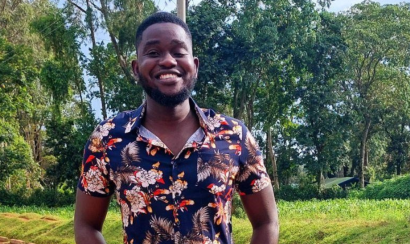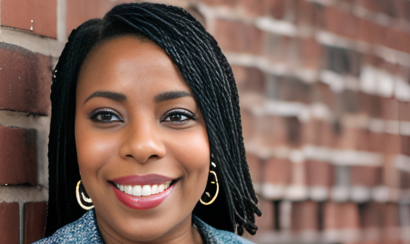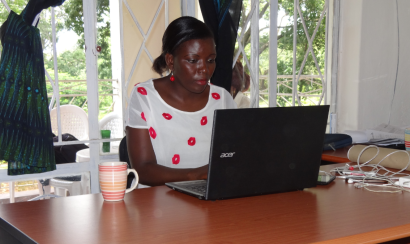In My Own Words: David Buruchara
David Buruchara, a Global Sourcing Logistics Associate, is part of our global supply chain team that works to source, deliver, and distribute crucial agricultural inputs to regional rural warehouses across our countries of operation.

We were in the middle of rural delivery of farm supplies when the first confirmed case of COVID-19 was reported in Kenya. What did that mean for you, and how did your team react?
Given what was happening elsewhere, we anticipated that we only had a few days before our distribution network would potentially be disrupted by movement restrictions. We were delivering 11,000 metric tonnes of fertilizer, and still had three weeks left to package, load, and transport from the port warehouses in Mombasa to Western Kenya. However, we now had to narrow down our delivery window to just nine days. To do this, we doubled our capacity by shifting to 24-hour packaging and loading operations in Mombasa, and procured extra transporters to move the supplies. In the end, we got the inputs to our clients with two days to spare.
That’s a quick turnaround. Has the COVID-19 pandemic changed how you work?
Fortunately, delivering agricultural supplies to farmers has been designated as an “essential service” in most of the countries where we work, which is critical to make sure food production isn’t disrupted. However, with global supply chains being interrupted by COVID-19 movement restrictions, we’ve been working on risk management measures like ordering reserve stock, engaging more suppliers, and seeking alternative delivery routes. We’re doing everything we can to make sure smallholder farmers receive the supplies they need to be able to plant in upcoming seasons.

Trucks being loaded at one of our warehouses in Kenya. During this crucial delivery period, we were loading up to 50 trucks a day at each warehouse.
Why did you choose to work in agriculture originally?
I realized that the opportunity for scale and impact is much greater, given the percentage of Africa's, and the world population, that are smallholder farmers. Expanding peoples’ ability to grow within this industry is exciting for me. Agriculture is a sector of humanity and our economy that's always going to be relevant. Sometimes this is lost on us because we or our parents’ generation left the village to come to the cities and assume that we left farming behind. Fortunately, more and more people are realizing that agriculture is where it's at! It's a sector that can incorporate a diversity of careers and professions. Whether you're a creative, a software engineer, or accountant, agriculture accommodates that. There are always places, like One Acre Fund and other organizations, that are looking for diverse talents like these.
Why did you choose One Acre Fund?
At first, it was difficult to find social impact-driven organizations. I wanted to work somewhere where, in addition to growing professionally, I got the satisfaction of knowing that my work is improving someone’s life in a tangible way, not just crunching numbers to fill balance sheets for profit. One Acre Fund was among the few that prioritized social impact, and that was exactly what I was looking for.
Before joining One Acre Fund, you had spent some time working at a couple of corporate companies. How does working here compare to the experience at a traditional corporate setup?
It’s definitely different! In conventional corporations, there can be a sense of feeling like you're just another cog in the machine, where your job description is set. Here, I’ve experienced considerable autonomy over my role, and you actually see the outcome of your work. Personally, my work feels more significant.
What would you say gets you up in the morning?
Knowing that at the end of each day, I will have learned something new and can leverage that growth to add value to the world. For me, no two days are the same. Every day is a new experience that brings with it new challenges. I am also lucky to have a bunch of great people in my team I love working with. It’s a huge motivator knowing that I don’t just work to earn but I work to learn.
Sounds interesting! What does a great day at work look like to you?
A great day for me is making progress on deliveries; moving a step closer to getting inputs to our warehouses so that farmers can receive their orders on time and in full. I also enjoy finding the balance between stakeholder relationship management, completing my day’s tasks, and fostering a fun working environment with colleagues.
Outside of work, what do you enjoy doing?
I'm recently married, so I’m enjoying adjusting to a new normal with my wife. I love hiking and exploring my beautiful home country of Kenya. Masai Mara is my favorite place on Earth. I also love to read, particularly non-fiction books and biographies. Recently, I started engaging my creative side by creating content to help people live more purposeful lives, and improve how they navigate relationships.
What does impact look like to you?
For me, it means delivering affordable inputs to farmers without compromising on quality; that's the sweet spot. When I joined the organization, we were serving 364,000 farmers in Kenya and moving 43,000 tons of fertilizer. This year, we’re moving over 60,000 tons. We usually relate the volumes to African elephants, which would mean we’re moving over 6,000 elephants. That’s a lot of movement!
What skills would you say you've gained in your time here?
I’ve had the opportunity to manage a direct report and seen my managerial skills improve over the years. The biggest learning is that when you manage someone, you work for them to succeed, they don't work for you. It's more, ‘How can I support this person to grow and do their best work?’ I’ve had to learn what my management style is, and how to leverage that to best support the people I work with.
What advice would you give to people who are just starting out in their careers?
Look for a role/company that gives you high potential for growth, not in terms of your position or job level per se but growth in your skills and the scope of work that you take on. The intention should be, of course, to pay your bills and earn an income, but, more, to grow and build your professional currency.
What do you think is the most distinctive part about our organizational culture?
I think of that in two aspects. First, I think that our collective passion to serve farmers is very evident in our culture. It's not simply a job for us. Secondly, One Acre Fund gives its staff a lot of responsibility, and gives them the autonomy to deliver. It’s great when you’re given the support you need, and trusted to deliver results.



